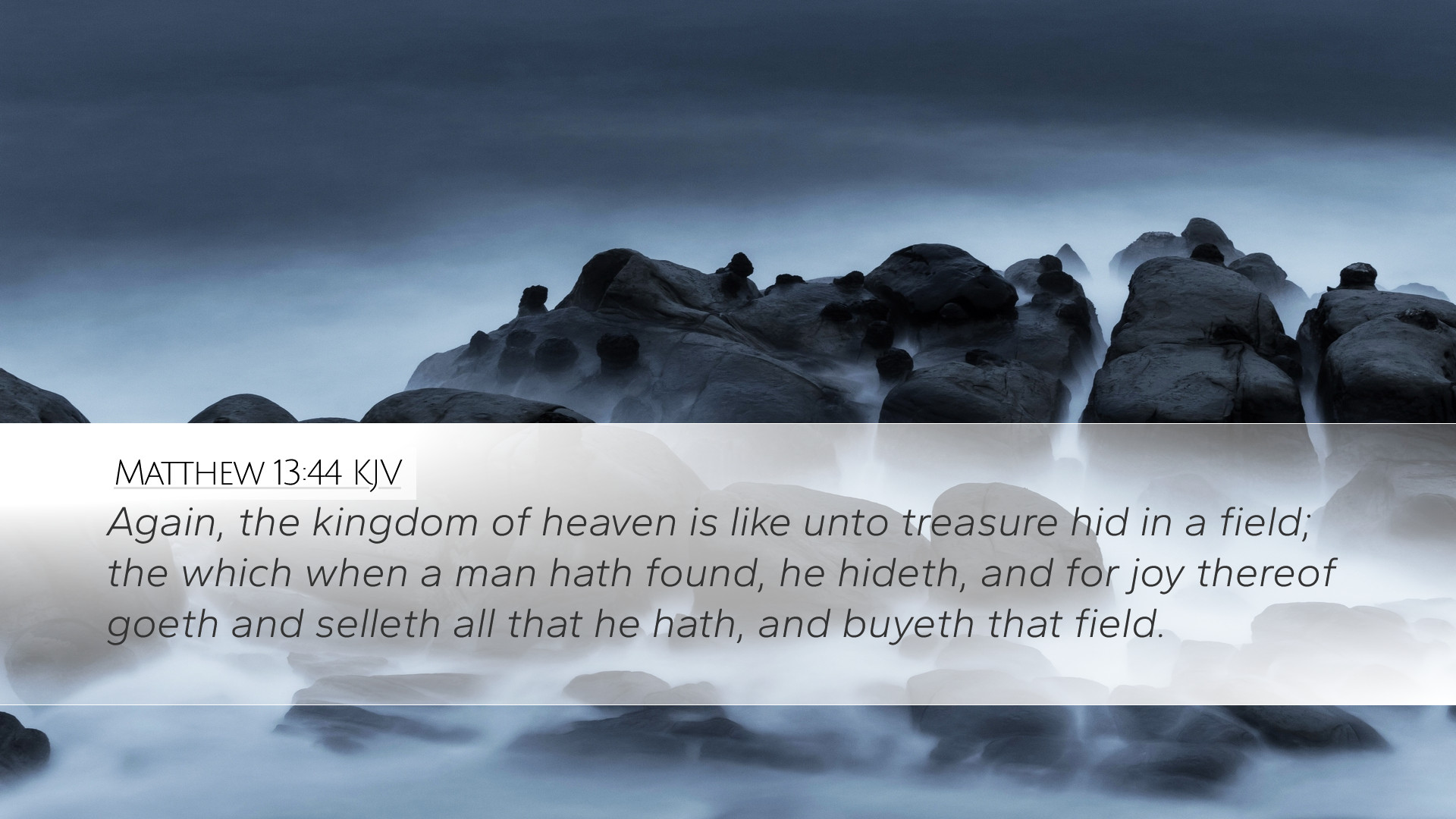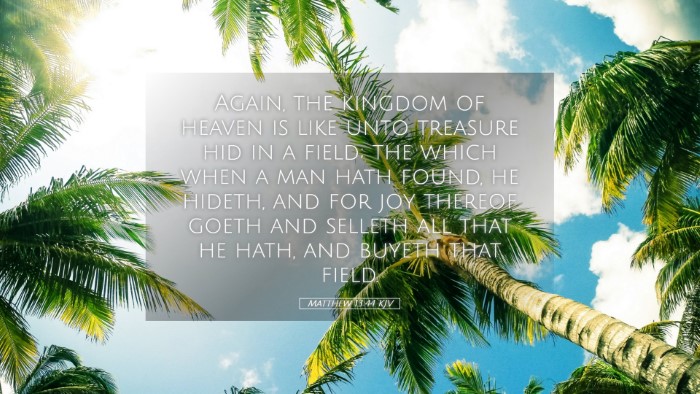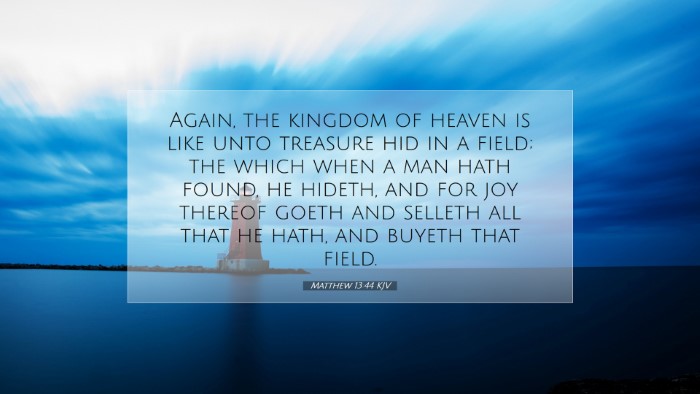Commentary on Matthew 13:44
Verse: "Again, the kingdom of heaven is like treasure hidden in a field, which a man found and hid; and for joy over it he goes and sells all that he has and buys that field."
Introduction
Matthew 13:44 presents a parable that emphasizes the extraordinary value of the kingdom of heaven. This verse encapsulates the theme of sacrifice and the willingness to give up worldly possessions for the sake of acquiring something far greater: eternal life and relationship with God.
Contextual Background
This parable is part of a series of teachings by Jesus, where He employs similes and metaphors to elucidate the nature of the kingdom of heaven. The setting of this parable emphasizes the unexpectedness of discovering divine truth and the response it must elicit from those who encounter it.
Commentary Insights
Matthew Henry's Commentary
Matthew Henry emphasizes that the hidden treasure represents the kingdom of heaven, which is of such priceless value that once it is discovered, it demands total commitment. He notes that the man’s joy upon finding the treasure signifies the immense joy that comes from discovering the kingdom of God. Henry highlights that the man's decision to sell all he possesses reflects the radical nature of true discipleship, recognizing that to gain the kingdom, one must be willing to relinquish everything.
Albert Barnes' Commentary
Albert Barnes elaborates on the elements of the parable, drawing attention to the importance of the field as signifying the world in which the treasure (the kingdom of God) is hidden. He posits that many live their lives unaware of the spiritual treasures available to them. Barnes also points out the joy experienced by the finder, suggesting that this joy is not only in the discovery but also in the willingness to invest everything in securing the kingdom, which represents true wisdom and understanding.
Adam Clarke's Commentary
Adam Clarke provides a detailed exegesis on the metaphor of hidden treasure. He indicates that the act of hiding implies that the treasure is often not seen by the majority, symbolizing how the kingdom of heaven is often obscured from the eyes of non-believers. Clarke reflects on the ethical implications of the man's actions, interpreting his conduct as both just and wise. The urgency in the man's decision to buy the field underscores the necessity of acting promptly upon realizing the value of the kingdom of God.
Theological Implications
This parable invites theological reflection on the nature of the kingdom of God and its transformative power. The act of finding and securing the treasure illustrates God's initiative in revealing His kingdom, which, though initially hidden, becomes accessible through the work of Christ. Moreover, the joy accompanying the discovery reflects the inner transformation that occurs when one becomes aware of and receives God’s grace.
Practical Applications
- Value of the Kingdom: Understanding the immeasurable worth of the kingdom of heaven should fundamentally alter one’s priorities and values in life.
- Radical Discipleship: Like the man in the parable, believers are called to a radical commitment to Christ, which may involve sacrifices of time, resources, and earthly attachments.
- Joy in Discovery: There is a profound joy that comes from the realization of God’s presence and His kingdom – a joy that transcends all earthly pleasure.
- Awareness of the Hidden: Believers are encouraged to seek the hidden truths of Scripture and the kingdom, recognizing that many are yet unaware of this divine treasure.
Conclusion
Matthew 13:44 serves as a poignant reminder of the value of the kingdom of heaven and the radical lifestyle it calls believers to embrace. Through the insights of respected commentaries, we gain a deeper understanding of the text, urging us to seek, discover, and joyfully invest in God's kingdom above all else. As pastors, students, theologians, and scholars delve into this verse, may they be inspired to pursue a life marked by an earnest desire for the divine treasures hidden within their faith.


